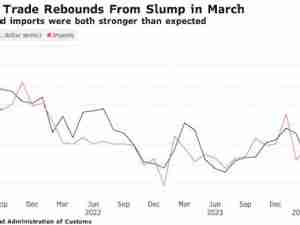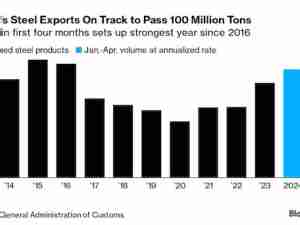German Foreign Minister Heiko Maas called on European nations to unite and fill the void left by the U.S. drawback from global agreements that have underpinned the trans-Atlantic relationship for decades.
“Under President Trump, the Atlantic has gotten wider. Trump’s isolationist policy has created a worldwide vacuum—that one can especially feel after the G-7,” Maas said in a speech in Berlin on Wednesday. “The speed with which we must join forces in Europe is greater than ever. Therefore our common response today to ‘America First’ must be ‘Europe United.”’
His remarks come a day after Chancellor Angela Merkel rebuffed President Donald Trump’s sustained criticism of Germany’s export prowess, arguing that the U.S. runs a trade surplus with Europe when services are included. In a speech Tuesday night, Merkel said the topic was discussed at last week’s tumultuous Group of Seven summit, where a U.S.-Canadian trade dispute caused Trump to renege on his support for the leaders’ concluding statement.
“Trade surpluses are still calculated in a pretty old-fashioned way, based only on goods,” Merkel told a business conference of her Christian Democratic Union party in Berlin. “But if you include services in the trade balance, the U.S. has big surplus with Europe.”
Merkel and fellow leaders are still struggling to adapt to an unpredictable U.S. president who seems to delight in challenging allies on issues from security to exports while lauding traditional rivals and enemies in Russia and North Korea.
Merkel didn’t expand on her trade claim, which doesn’t match U.S. data. According to the Census Bureau, the European Union had a $101 billion trade surplus in goods and services with the U.S. last year and a $30.3 billion surplus in the first quarter.
Merkel indicated she lobbied Trump to refrain from slapping tariffs on U.S. vehicle imports from Europe, a measure that threatens to hit German carmakers the hardest. She said she proposed a study of the car industry’s “strategic importance” on both sides of the Atlantic, followed by talks with the goal of avoiding unilateral measures.
Trump said on Twitter in March that if the EU drops its “horrific barriers & tariffs on U.S. products going in, we will likewise drop ours,” but that he would otherwise “tax cars.”








